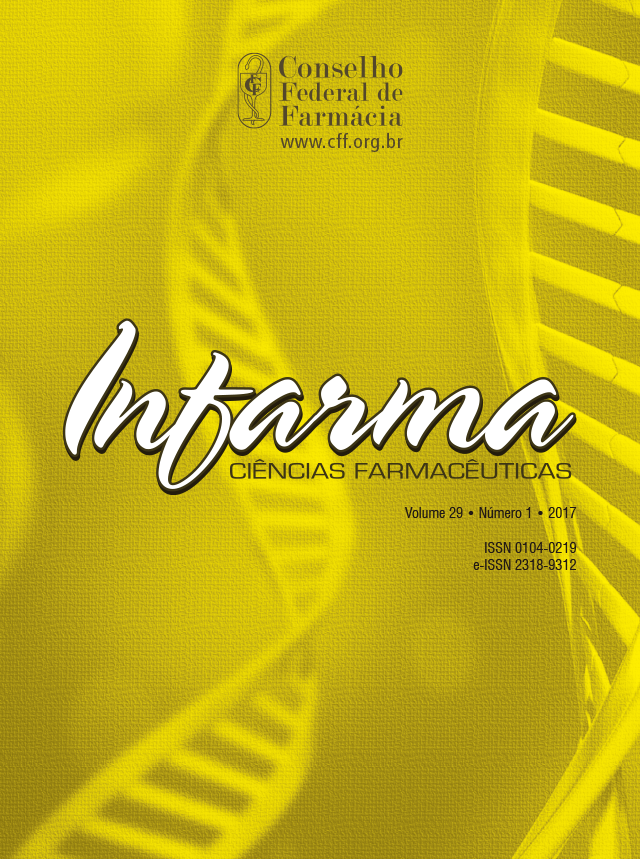TOPICAL USE OF CIDOFOVIR FOR THE TREATMENT OF LESIONS ASSOCIATED WITH HUMAN PAPILLOMAVIRUS: A LITERATURE REVIEW
DOI:
https://doi.org/10.14450/2318-9312.v29.e1.a2017.pp13-20Keywords:
cidofovir, Human Papillomavirus, antiviral, topical therapyAbstract
Genital warts are epithelial lesions induced by Human Papillomavirus (HPV). Nowadays, the techniques used to treat these lesions are painful and the relapses usually occur in short periods. Several studies have demonstrated the efficacy of cidofovir in the treatment of HPV among other viral infections. The objective of this literature review is to discuss about the drug and its clinical use in the treatment of HPV, presenting the dosage form, dosage, side effects and data on its efficacy. The results of this literature review showed that the intralesional and epidermal use of cidofovir in extemporaneous
formulations are effective in the management of condyloma. The topical use of cidofovir is, therefore, a clinical alternative to conventional treatments, minimizing local side effects and avoiding the occurrence of systemic
adverse effects. Therefore, it is necessary to standardize a topical formulation through pre-formulation studies and other clinical trials in order to obtain a stable, safe and effective preparation for the treatment of HPV-associated
lesions.
Downloads
Published
How to Cite
Issue
Section
License
Authors who publish in this journal agree to the following terms:
- Authors retain the copyright and grant the journal the right of first publication, with the work simultaneously licensed under the Licença Creative Commons Attribution which allows the sharing of work with acknowledgment of authorship and initial publication in this journal.
- Authors are authorized to take additional contracts separately, for non-exclusive distribution of the version of the work published in this journal (e.g. publish in institutional repository or as a book chapter), with acknowledgment of authorship and initial publication in this journal.
- Authors are allowed and encouraged to publish and distribute their work online (e.g. in institutional repositories or on their personal page) at any point before or during the editorial process, as this can generate productive changes as well as increase the impact and Citation of published work (See O Efeito do Acesso Livre ).


